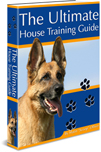You hate to admit it, but your furry pal is getting a little older. You want to ensure that your pet is happy and healthy for many years to come. You have heard all of the hype about the new dog diets for older pets. Is there really a difference between dog food for adult dogs and kibble recommended specifically for seniors? How do you know when to switch your pet to a different diet?
The best resource for advice about dog diets is your pets vet. Only you and your trusted vet know the particular needs of your pet. Talk with your vet about any concerns and questions you may have. Your will vet help you with any changes, that is if any, need to be made to your dogs diet.
If your senior dog does not have any health troubles and keeps a healthy weight, then there will be no need to change your dogs diet from adult to senior dog food. But, on the other hand, if your dog has trouble keeping there weight down or digestive problems, you may need to switch diet. If weight is the only problem, then consider lowering the amount of dog food you give to your pet. This may be all the change your dogs diet needs.
A senior dog is classed as a dog in the last third of their life. Larger dogs, such as Great Danes, live to be about 9 years old. When they reach the age of 9 years old, you may want to think about a senior dogs diet. On the other hand, a Poodle will not reach senior status until about age of ten, this is due to the longer life expectancy. The decision to alter your dogs diet should be based on there health condition, rather than there actual age in years. Your vet will help you to decide when the right time is to change your dogs diet.
Dog food especially prepared for senior dogs typically has less calories. This helps to combat any weight issues. The senior dog food also contains more fiber for the different needs in your dogs diet. As dogs age, they tend to suffer from constipation, this extra fiber will help remedy this problem.
Renal failure can be a health problem for senior dogs. How can your dogs diet help with this problem? Cutting down the amount of protein in your dogs diet will decrease the work load of the kidneys. For the most part, this is the reason, senior dog food often has lower protein content than regular adult formulas.
You should when possible, give your dog to eat dry dog food to encourage excellent dental health. Dry kibble helps to reduce plaque and any tartar buildup. If your senior pet rejects the food dry, then try moistening it with water or you could the purchase moist canned varieties.
When your vet recommends supplements may be a help as part of your senior dogs diet. It Is because, some pets are unable to eat properly due to dental problems. many other older pets are not able to gain all of the nutrients from their food, this again is for various health reasons. Supplements such as, vitamins given everyday and glucosamine can be a great help to maintain a healthy diet for your dog.
Glucosamine helps joint health. For senior dogs, glucosamine can help to fight arthritis and hip displasia.
Vitamins C, A, and E, help reduce the natural aging process and encourage better health for senior dogs. You should talk to your vet about adding such supplements to your dogs diet.
We all want what is best for our pet. Your senior dog should have a diet that meets their nutritional needs. You and your vet should work together to determine what is the best diet for your senior dog. Your dogs diet will directly affect their health. Take care of your pet by supervising your dogs diet closely with the help of your veterinarian.
For further free information try visiting Free Dog Diet Tips






No comments:
Post a Comment